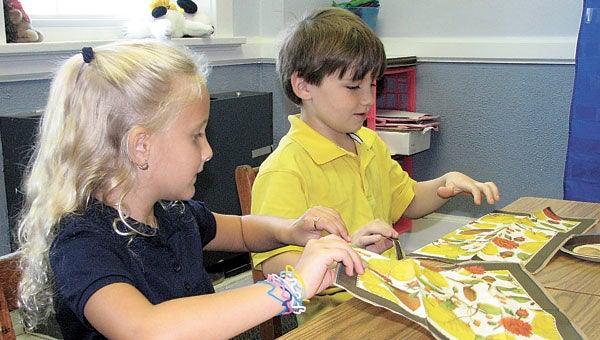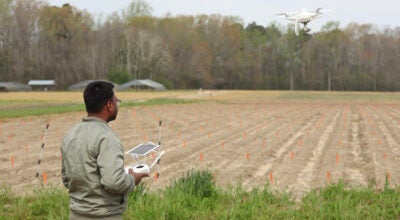Teaching more than P’s and Q’s
Published 10:12 pm Thursday, September 23, 2010

Proper manners: First graders at First Baptist Christian School learned proper manners in class. Here they learn proper napkin tips. The program is one that will be implemented in all grades at the school.
While science, history and math teachers all use books to instruct students, some lessons are better taught through experience.
To supplement their academic education, students at First Baptist Christian School are learning to mind their P’s and Q’s in the school’s etiquette classes, which are new this year.
“In our culture, children just aren’t taught proper manners,” said Susan Glover, First Baptist Christian School’s director of public relations and development. “A proper education includes being taught manners and skills that will allow you to share your academic education. It’s important in social situations and when applying to a job. It’s a life skill we want our students to have.”
All students in grades kindergarten through 12th are being taught different lessons relevant to their age groups by Melissa Boyce, co-founder of BreakThru! Consulting.
Boyce began teaching the students this week. A group of first graders were her first students.
“It’s about teaching them about how your actions make others feel,” Boyce said. “We’re trying to teach them why you get up from playing X-Box and say hello to others, how to hold a conversation and how to help mom set the table.”
The students took turns properly introducing their “mom” to their teacher and practiced how to properly spit something distasteful, such as a bone, into a napkin.
Older students will learn about good sportsmanship, how to handle peer pressure and how to be a gracious guest at someone’s home.
Upper school students also will learn proper thank-you note etiquette, take personality tests to help understand themselves and appreciate their own and others’ unique qualities, and eventually practice resume and cover letter writing.
“We forget little things we do affect others — everything from being confident enough to look someone in the eye to not throwing trash out the window for someone else to clean up,” Boyce said.
By learning to treat others with respect through actions, students are also engaging in the school’s mission.
“It’s an important life skill, but it’s also our mission to represent the Lord well,” Glover said. “God calls us love others, and we want to foster those values and skills in our students.”






